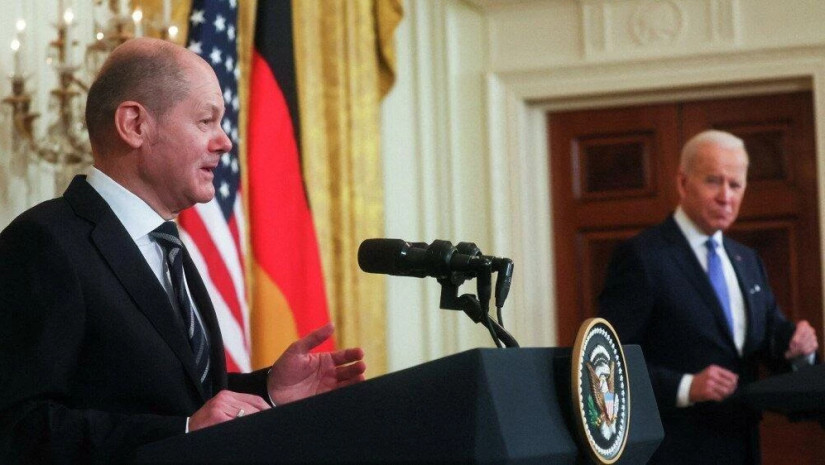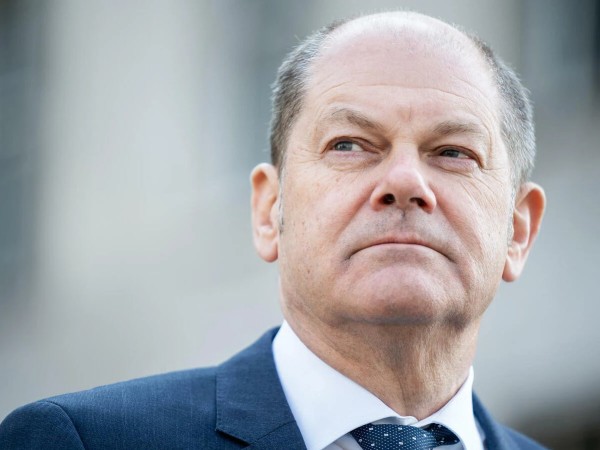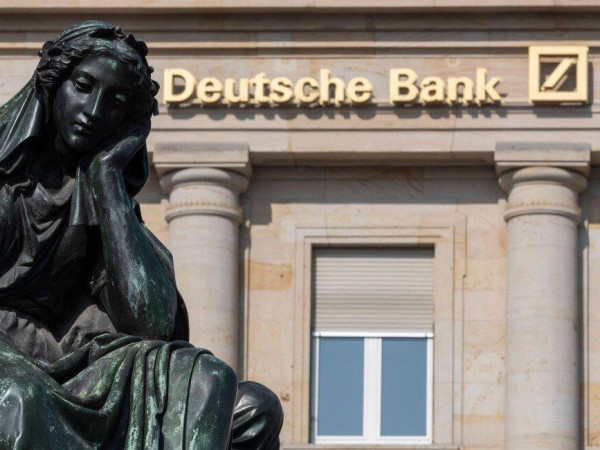One moment stood out during the press conference with German Chancellor Olaf Scholz and US President Joe Biden earlier this week. When asked about the controversial Nord Stream 2 gas pipeline linking Russia and Germany, it was Biden, not Scholz, who made it clear that the project would be shut down if Russia dares to invade Ukraine.
Scholz, however, is keeping his options open — though the two men stressed that Germany and the US would continue to coordinate and act together, DW (Deutsche Welle) reports.
Their message to the Kremlin: the US, Germany and Europe speak with one voice. At the heart of the matter, however, is the question of what the US can actually expect from its close partner and ally Germany when it comes to Ukraine.
'Germany has never been an easy partner'
When Ukraine recently requested arms deliveries from the West to better equip its army — whose troop numbers are dwarfed by Russia's — the German defense minister instead offered 5,000 helmets. The proposition was ridiculed and caused some raised eyebrows in the US and elsewhere.
Instead of weapons, Germany wants to rely on diplomacy. But that alone won't be enough, the White House has said.
One thing is clear: Germany has historically had reservations about supplying weapons to crisis zones. This restraint cannot come as a surprise to the US. Time and again, Washington has nevertheless demanded that Berlin adopt a tougher policy toward Russia and China. Yet Germany has been reluctant — both under former leader Angela Merkel and now with current Chancellor Olaf Scholz.
Germany's reticence also has to do with its political system, said Constanze Stelzenmüller, an expert on transatlantic policy with the Washington-based Brookings Institution. "Germany has never been an easy partner," she said. That Scholz is governing in a historically unique three-party coalition of the center-left SPD, Greens and neoliberal FDP doesn't make it easier, she added.
"It's hard to explain to people who live in presidential democracies like France and the US, but a German chancellor has less power in comparison," she said.
As a country dependent on its export market, Germany is very sensitive to the Chinese and Russian markets, especially when it comes to industrial products. Sophia Besch, a German foreign policy expert with the Atlantic Council think tank, sees Germany as an influential voice in Europe, also when it comes to Ukraine. However, she attributes Berlin's focus on diplomacy to economic interests.
"If nothing else, because the country would suffer from economic sanctions, should it come to that," said Besch, referring to the possible measures against the Kremlin and the strong entanglement between the German and Russian economies. In addition, Germany can look back on years of diplomatic mediation with Russia, including the Normandy format talks and negotiations surrounding the Minsk agreement.
US can afford rift with Russia
But the US economy is structured differently from the German economy, and US diplomats have other priorities. The US has a large trade surplus, especially with China — an unwelcome fact for previous presidents. Germany, on the other hand, depends on these markets and is less able to afford a diplomatic rift. In addition, historical and moral considerations have shaped German foreign policy in the postwar era.
The US, and by extension Ukraine, can't count on more weapons or soldiers from Germany. The 350 soldiers posted to Lithuania just a few days ago were merely a symbolic effort, just like the promise of 5,000 helmets. Scholz travels to Moscow on Tuesday for another round of shuttle diplomacy with Russian President Vladimir Putin, but there are doubts in Washington over whether anything will come of it.
In their almost daily assessments, the CIA and the Pentagon have warned that a Russian attack is imminent. Meanwhile, in Congress, the issue of sanctions has been the subject of passionate debate: The Republican Party would prefer to impose them now, whether Russian soldiers cross the border into Ukraine or not.
Diplomatic balancing act
Germany's role in this conflict has become a fundamental question of diplomacy or deterrence. Hope remains on both sides of the Atlantic that a diplomatic solution can be reached, perhaps in the form of a revival of the 2015 Minsk peace agreement, said Besch.
However, the treaty is "notoriously ambiguous, interpreted differently by all sides, and was never fully implemented," she added. The diplomatic successes of both Germany and France depend on Russia's goodwill, and "that is more than questionable at the moment," she said.
From the US perspective, Putin only understands the language of deterrence. This includes economic sanctions and, if necessary, an end to the Nord Stream 2 gas pipeline.
Fiona Hill, former senior director for Russia and Europe at the US National Security Council, described the situation as a "diplomatic dance."
"Of course, there is risk for the German government of lawsuits and all kinds of breaches of contract that may unfold from all this," she told DW.
"Under the previous (Trump) administration, all the pressure that was put on the German government was counterproductive."
Biden, she said, is trying to leave it up to Germany to decide on the future of Nord Stream 2. "But obviously, we need to show complete unity, and I think that somehow, Chancellor Scholz must thread that very difficult needle."
Beyond unity, nothing else appears possible, at least for the moment.















